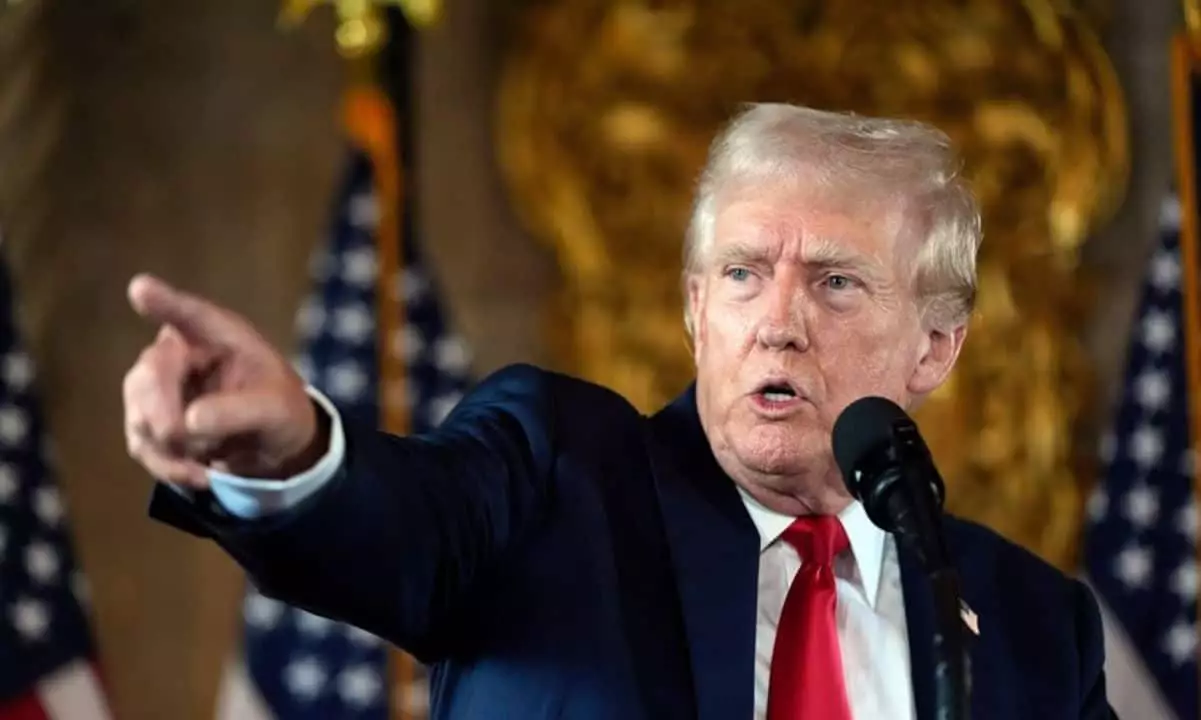Recent revelations from the United States Federal Election Commission have unveiled significant financial contributions made by prominent tech investors to pro-Trump political action committees (PACs). Noteworthy figures such as Marc Andreessen and Ben Horowitz have each contributed $2.5 million to the Right For America PAC, a group aligned with Trump’s presidential agenda. Their rationale, as reported by Bloomberg, centers on the belief that Trump’s policies present a favorable environment for the tech ecosystem, particularly for startups and the burgeoning cryptocurrency space, which they refer to as the “little tech agenda.”
Andreessen’s political involvement goes beyond the PAC donations; he has reportedly contributed the maximum allowable amount of $844,600 directly to Trump’s campaign and the Republican National Committee. This level of financial commitment raises questions about the motivations behind such investments, especially considering the controversial sentiments surrounding Trump’s presidency.
Contradictory Donations and Political Diversification
Adding an intriguing twist to the narrative, Horowitz recently indicated he may also support Vice President Kamala Harris, despite her previously tepid remarks on cryptocurrency regulation. Although no official records of any donations to Harris’s campaign have surfaced, this potential alignment with a Democratic figure contrasts sharply with his substantial contributions to a pro-Trump PAC. Investors generally seek to align with candidates whose policies align with their business interests, making Horowitz’s consideration of Harris particularly puzzling.
This complex backdrop is further complicated by the actions of Chris Larsen, co-founder of Ripple, who has pledged $1 million worth of XRP to the Future Forward PAC, which backs Harris’s campaign. Such decisions appear unsettling, especially considering Ripple’s ongoing legal battle with the Securities and Exchange Commission, a struggle that has lasted nearly four years. The divergent actions of these tech leaders illustrate the intricacies of political affiliations within the tech industry, especially in an era where regulation heavily influences market opportunities.
The Shaping Influence of PACs on the Crypto Landscape
The Right For America PAC has proven to be a formidable player in the political donation sphere, reportedly raising an impressive $27.8 million, with $43.6 million still at its disposal in crucial campaign weeks. Notably, their strategic focus on swing states like Arizona, Georgia, and Pennsylvania suggests a tactical approach to securing electoral wins. The market dynamics extend beyond just these figures; the likes of billionaire Miriam Adelson and even Elon Musk have made substantial donations to pro-Trump causes, suggesting a broad coalition of wealthy individuals channeling their resources towards candidates and issues favoring less stringent regulations for digital assets.
The landscape for political spending is rapidly evolving, particularly in the realm of cryptocurrency. Various PACs, such as Fairshake, are stepping into the political arena with the explicit aim of influencing regulatory frameworks that govern digital currencies. Collectively, these entities raise significant capital—over $200 million can be attributed to crypto-oriented initiatives alone—which further illustrates the industry’s commitment to shaping its operational environment.
As the 2024 election cycle unfolds, the interplay between technology, venture capital, and politics foregrounds a complex relationship. The financial backing of candidates who resonate with the interests of the tech industry, particularly cryptocurrency, highlights a broader commentary on the substantial influence these figures may wield in shaping policy. Voters and stakeholders alike may need to scrutinize and comprehend the motivations behind these monetary flows, as they stand to affect not only the political landscape but also the regulatory framework governing one of the most transformative sectors of our time.

